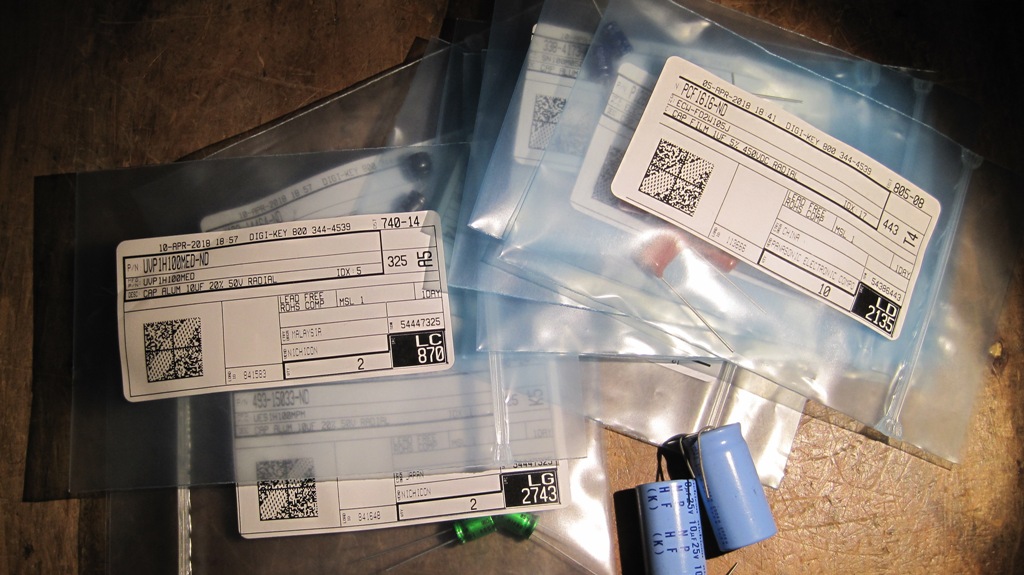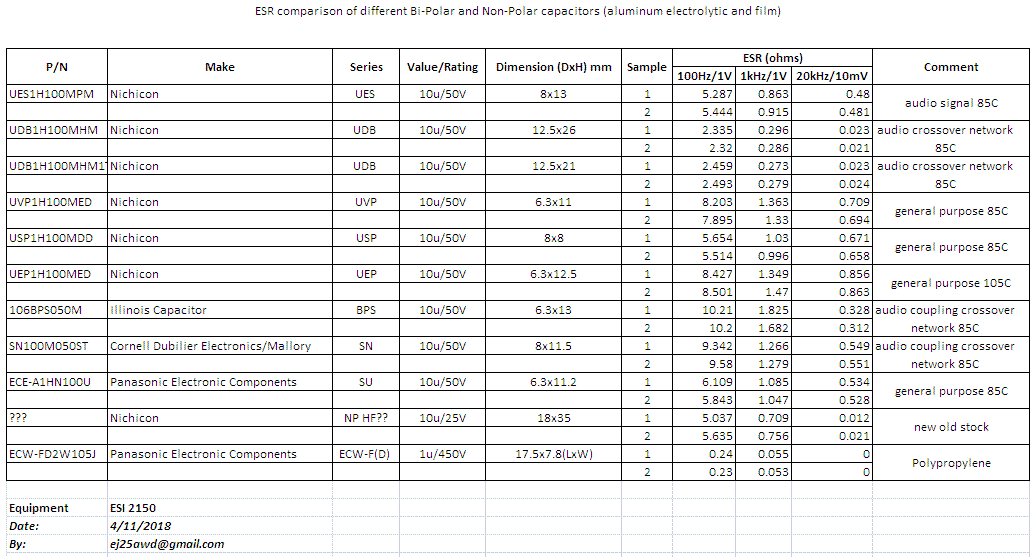Okay, stream of consciousness thing that wanders all over. I'm not sure where I started and where I ended, but it seemed like you were upset. Happy you're not. Oh well, glad you got the info and it was nice seeing that data.
Why is ESR a useful indicator of a cap's suitability for speaker x-over use?
P=IxIxR.
Pass a 1A current through a capacitor with an ESR of 1ohm, the heat generated in the capacitor will be 1W. Compare that to a capacitor with an ESR of 5ohm or 10ohm. The capacitor will overheat and eventually stop working.
Also, it will affect the frequency response of the filter.
P=IxIxR.
Pass a 1A current through a capacitor with an ESR of 1ohm, the heat generated in the capacitor will be 1W. Compare that to a capacitor with an ESR of 5ohm or 10ohm. The capacitor will overheat and eventually stop working.
Also, it will affect the frequency response of the filter.
@DPH My attention is being pulled in too many directions. Simply trying to close one door.
Last edited:
i have seen lots and lots of aluminum non polar/bipolar caps used in cheap speakers, but do not discount the sound, pretty decent too...
many years ago, 50ufd films were not yet available, so now no excuse not to use film caps in place of the aluminum caps....
many years ago, 50ufd films were not yet available, so now no excuse not to use film caps in place of the aluminum caps....
Here are actual measured ESR values of 10uF/50V bi-polar capacitors available right now from DigiKey including the MUSE ES. I've also included a 1uF/450V Panasonic ECW-F polypropylene film capacitor and a N.O.S. 10uF/25V Nichicon NP HF in the mix.
These are not absolute values and I'm not making any claims of accuracy but one can make relative comparison between products with the data provided. All capacitors were measured under the same test frequency and voltage.
As shown on the table, it is not safe to make assumptions of the high frequency performance of any capacitor especially when the manufacturer provided only 120Hz and 1kHz test data.
One interesting tidbit is that Illinois Capacitor and CDE/Mallory mentions on their datasheets about the suitability of their products for use on speaker crossover. The ESR for both shows that might not be the case.


Thank you so much for sharing. I am just sitting here with some Nichicon UVP bipolars and was wondering if I can use them for my vintage IMF TLS80, but obviously not optimum caps at all. This really helped me out.
Ebay next...
All credits you shall have!
Cheers!
/Per
Did you say that your boy put polarized caps in the X-over? If that's the case he needs to let someone else do the repair for him.
Oh I just realized this post was from 2018. Oh well my advice still stands even if it is too late to matter.
- Status
- Not open for further replies.
- Home
- Design & Build
- Parts
- Can Nichicon ES bipolar electrolytics be used in speaker crossovers?